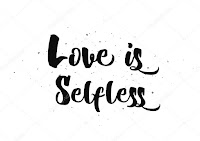DERIVING MARITAL UNITY OUT OF DIVERSITY
GOD
IS THE AUTHOR OF DIVERSITY
Truly,
God is the author of diversity. The Bible says, “. . . male and female He created
them” (Gen 1:27). God had a purpose for not creating us the same. In His plan, our
differences were never intended to divide us, but to unite us. God designed our
differences to be complementary, not to cause conflicts. He created our
differences to be assets not liabilities. The man said, “This is now bone of my
bones, and flesh of my flesh; she shall be called Woman, for she was taken out
of Man.” Therefore, shall a man leave his father and mother, and shall cleave
unto his wife, and they shall become one flesh (Gen.2:23-24).
When
each spouse recognizes and affirms the other’s uniqueness, the differences weld
the couple together into an unbeatable team.
PEOPLE
ARE DIFFERENT
People are different, and
knowing this is essential for building positive and lovely relationships. No
two snow-flakes are the same; no two fingerprints are identical, so far as forensic
science has been able to determine, not even identical twins have fingerprints
that are exactly matched; and no two leaves on a tree are ever exactly alike in
every detail –God built into our genetic structure the potential for unlimited
diversity. In fact, we are different in many aspects of life: take a walk with
your spouse, and you will notice you walk at different pace and with a
different gait; sit down to rest and you will notice that the two of you sit
differently; engage in a conversation and you will discover that your thoughts are
extremely diverse. We all have a unique approach to a task we want to
accomplish.
Certainly, all women are not the
same, nor are all men the same; but in very general ways, men and women differ
from each other.
UNITY
IN DIVERSITY
The
institution of marriage as a union between two unique individuals was to create
“unity out of diversity.” Often we are drawn or attracted to people we love not
because of similarities to us, but because we are different. Though love allows
us to integrate within ourselves the qualities of the beloved, its prerequirement
is an awareness of differences –we are drawn to that which is different –opposites
attract!
As
a man blends his male energies with the woman’s female energies, he experiences
the bliss of his own wholeness. Through touching the softness and warmth of her
femininity with love, he becomes soft and gentle, yet maintains his masculine strength
and drive.
Because
we are attracted to people who are unlike ourselves, the fundamental basis for enriching
relationships is the acknowledgment that people are different.
THE
CONFLICTS
Intense
attraction to someone is a sign that there are many differences to harmonize, and
many conflicts to resolve.
The
vast majority of the conflicts between men and women arise from one basic
misunderstanding: we assume that we are the same, when in many ways, men and
women are different. We practically do not acknowledge that people are
different from us; however, we are bent on changing one another to think, feel
and behave like we would. And when they react differently, we say they are difficult.
Couples
after years of marriage argue about their differences, each trying to convince
the other that his/her way is the best. The differences are interpreted as
flaws and weaknesses. Sooner than later, a host of problems arise, and the
differences become a source of conflict instead of appreciation and wonder. The
bond of love diminishes, and they begin to ask themselves, why are we still
together? Then they often conclude that they are not compatible. In fact,
incompatibility or “irreconcilable differences” is often given as the grounds
for divorce/separation.
However, Dr. Gary Chapman asserts that there are no “irreconcilable differences”, only people who refuse to reconcile.
However, Dr. Gary Chapman asserts that there are no “irreconcilable differences”, only people who refuse to reconcile.
We
only need to understand, accept and appreciate our differences; and not have
the principle, “if only they would change, do what we ask and agree with us, then
we would love them”. It is not love to accept and appreciate people only when
they fulfill/meet our expectations, change to be what we want them to be, and
always agree with us. By acknowledging and accepting that people are different,
we are freed from the tendency to change them, and then we are free to
appreciate their unique values. Once we readily appreciate them, we freely love
them.
Giving
your loved one permission to be different opens a new dimension in which love
can blossom and flow. “The lover allows the beloved be different!”
MAXIMIZE
YOUR DIFFERENCES
In
the institution of marriage, God intends for husbands and wives to bring their
unique characteristics together to form one unbeatable team that will work
together under God’s direction to accomplish His eternal purpose.
1. Identify your differences:
The most obvious are those things about your partner that irritate you most –simply
because they don’t do it the way you would do it.
- Extroverts often marry those who are quiet and reflective.
- Those who live by the philosophy “A place for everything and everything in its place” often marry the disorganized whose most common question is “where is it?"
- Homebodies often marry party-goers.
- Avid readers often marry “TV addicts.”
- People who say “I think” often marry those who say “I feel.”
2. Look for assets in your
differences: Every difference has a positive side. For
example, extroverts are often very good salesmen/bargainers, whiles quiet
people are often very observant with the eye for “good” things. These two can
complement each other to shop for quality stuff at reasonable prices. What a
blessing!
3. Learn from your differences:
Remember God’s plan for our differences is that they be complementary. Learn to
work as a team and stop arguing because even the dogs and the cats have stopped
fighting, and have forgiven each other.
4. Replace condemnations with
commendation: Affirming our partner’s differences
creates an atmosphere for positive actions. Could you tell your partner, “I thank
God for creating you different from me; how could we have done this if we were
created the same.” Surely, they will appreciate and be inclined to be more
positive.
5. Discover a plan for maximizing your
differences: Explore a plan to make the best out of
your differences. There is a story of a blind person and a cripple who found
themselves in the middle of a jungle and were trying to find their way out. While
the blind person was in need of “eyes” as a guide, the cripple was looking for “legs”
to walk out. The two came to a useful agreement: the blind person decided to
carry the cripple while the cripple directs the way. Both came out of the jungle
faster and safer than would have done individually.
Most
often, it is not our differences that is the challenge, but failing to identify
areas that our differences can complement each other. Many relationships have
failed not because the individuals involved didn’t love each other, but because
they couldn’t find areas where they could complement each other productively.
Derive
marital unity out of your differences.
REFERENCES
- The Four Seasons of Marriage by Dr. Gary Chapman
- Men, Women and Relationships by John Gray (PhD)
- Being Different Isn’t Inferior by Christopher Akaligang



Comments